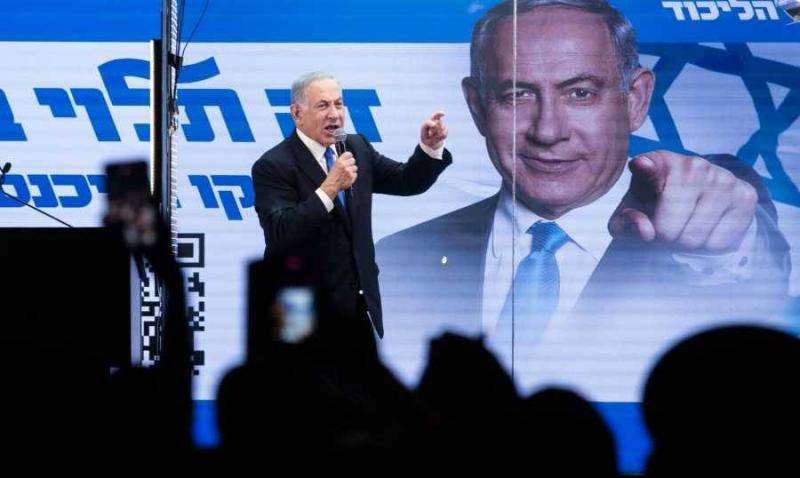Preliminary results of the Israeli elections show the advancement of the "Likud Party" led by former Prime Minister Benjamin Netanyahu. This advancement is significant not only for Israeli reality but also for a historic agreement that was signed recently between Lebanon and Israel on October 27. Netanyahu, the leader of the Israeli opposition, has threatened in the past few days to "cancel the maritime boundary agreement with Lebanon that was signed last week" if his party wins the Knesset elections, stating, "I will treat it (the agreement) just as I dealt with the Oslo Accord," describing it as "another surrender agreement."
This grave threat raises the question of whether it is mere electoral populism or if it can actually be executed, especially given the internal political fragmentation in Lebanon amidst presidential vacancy and governmental transitions. Oil expert Dr. Rabi Yaghi explains to "Al Markazia" that "everyone, including Netanyahu, knows that the United Nations is the guarantor of the agreement reached between Lebanon and Israel concerning the demarcation of the exclusive economic zones located south of Lebanon and north of Israel. Therefore, Netanyahu cannot easily nullify or withdraw from the agreement, even though indications suggest his victory in the Israeli elections."
He believes that "Netanyahu's statements fall within his electoral campaign and the populism he practices as part of internal electoral games in Israel that do not concern Lebanon and do not affect it in any way." He notes that the presence of the UN as a guarantor and sponsor makes it nearly impossible to manipulate or nullify the agreement.
#### What Comes After the Agreement?
On another note, Yaghi points out that "the necessary next step following the signing of the maritime boundary agreement with Israel is for Lebanon to promptly request the operating company 'Total' to conclude the logistical preparations and begin drilling and exploration operations in 'Block 9.' Because ultimately, drilling and exploration operations are the essential element in asserting Lebanon's sovereignty over blocks 9, 8, 10, and others."
He emphasizes that the importance in this area lies in "Lebanon promptly fulfilling its duties and coordinating with Total within a timeline to commence petroleum activities in Block 9." Time is not on Lebanon's side, having wasted 15 years on unproductive political disputes that must end today, adopting prudent and strict management of the oil sector to achieve the desired outcomes, even if this takes a long time. Notably, there are at least eight years before Lebanon achieves commercial production.
He states: "We must be on high alert in a state of emergency regarding oil activities in all blocks, and it is necessary to re-offer blocks 8 and 10 adjacent to northern Israel as a single package for contracts to any interested investment company, especially since there are no longer any disputed areas within the exclusive economic zone belonging to Lebanon."
In conclusion, he asserts: "The most important thing today is for Lebanon to fulfill its internal duties and the required activities according to a well-studied and clearly defined technical scientific work plan, free from political bickering and quotas."




